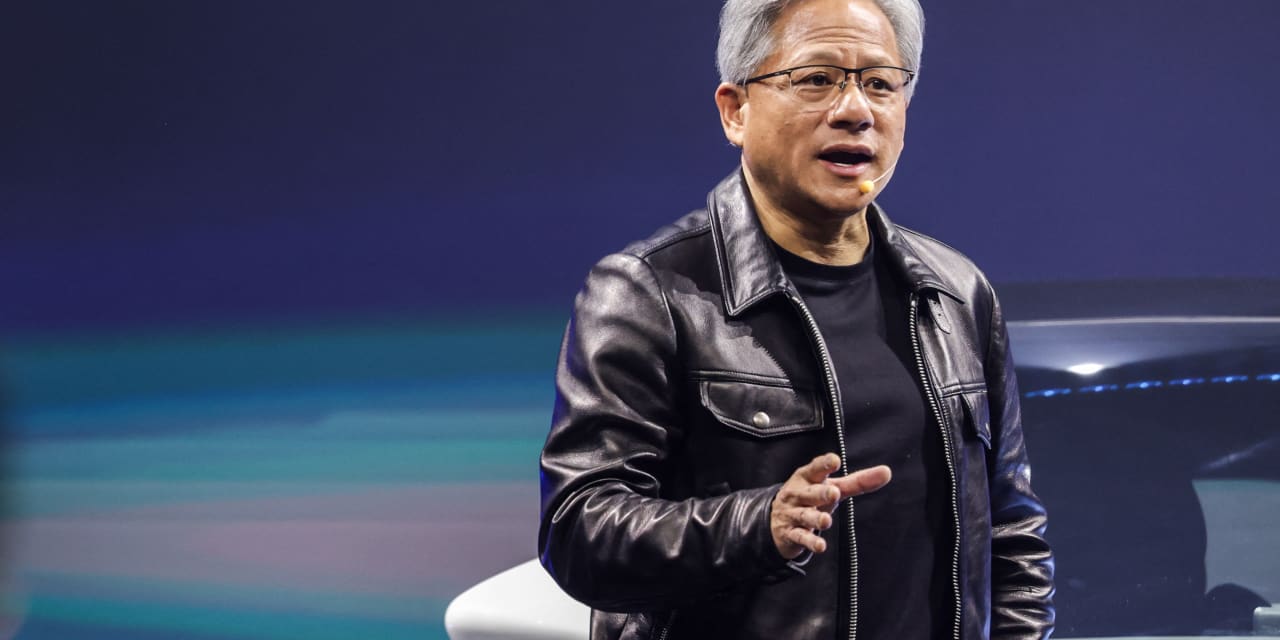This article is from the free weekly Barron’s Tech email newsletter. Sign up here to get it delivered directly to your inbox.
Full Context. Hi everyone. Tantalizing storylines tend to take on lives of their own. But sometimes, the true meaning gets lost along the way.
Take
Nvidia
CEO Jensen Huang’s viral moment. Late last year, the executive was asked—if somehow he was 30 years old again—what kind of company he would start today.
“I wouldn’t do it,” he said on the Acquired podcast. “The reason why I wouldn’t do it, and it goes back to why it’s so hard, is building a company and building
Nvidia
turned out to have been a million times harder than I expected it to be.”
The clip sparked a frenzy. You likely saw the article headlines and the videos that flooded TikTok after the interview. The narrative became that the co-founder of the world’s most important chip company—worth almost $2 trillion today—wouldn’t do it again because it was too difficult.
But the idea’s concept was flawed. First and foremost, it doesn’t match the essence of who Jensen Huang is. I’ve spoken to dozens of current and former employees over the past year for a book I’m writing on Nvidia. They all paint a different picture. He lives and breathes work. No one works harder. No one loves building Nvidia more. “I work every day. There’s not a day that goes by I don’t work. If I’m not working, I’m thinking about working,” Huang said in a recent interview. “Working is relaxing for me.”
What happened online is reminiscent of a “game of telephone,” in which a message gets distorted as it’s passed between people. People add their own context to fill in interpretations of the story. It also reminds me of what Jeff Bezos once said about the type of content that spreads online. “The internet is a nuance destruction machine,” Bezos said. “If you really want your meme on the internet to go far and travel fast, you have to eliminate all nuance in it.”
Huang has since repeatedly denied this story. When asked at the New York Times DealBook Summit about why he wouldn’t start Nvidia again, he clarified: “That wasn’t what I meant. I think it would be disingenuous if I said it wasn’t worth it. I enjoy a lot of good things in life. I’ve got a great family. We built a great company. All of that is worth it.”
The executive was even more emphatic in an interview with Wired published last week: “If I had known then that Nvidia would become what it is today, would I have started the company? Are you kidding me? I would’ve sacrificed everything to do it.”
Despite the distraction, there is a nugget of wisdom in how Huang originally answered the podcast question. His intended meaning was that entrepreneurs need to mentally trick themselves in order to avoid being intimidated by the ever-mounting business challenges.
“I think that that’s the superpower of an entrepreneur. They don’t know how hard it is, and they only ask themselves how hard can it be,” he said later in the Acquired interview. “To this day, I trick my brain into thinking, how hard can it be? Because you have to.”
For my book on Nvidia, I’ve been compiling a list of Huang’s catchphrases that symbolize his management philosophy and the company’s unique work culture. I dub them Jensen-isms. “How hard can it be?” is one of my favorites.
Ignorance can be a gift, even if it is feigned. The real message is success requires an enormous amount of hard work and resilience. Jensen Huang isn’t avoiding it. He’s just figured out how to do it.
This Week in Barron’s Tech
Write to Tae Kim at [email protected] or follow him on X at @firstadopter.
Read the full article here




